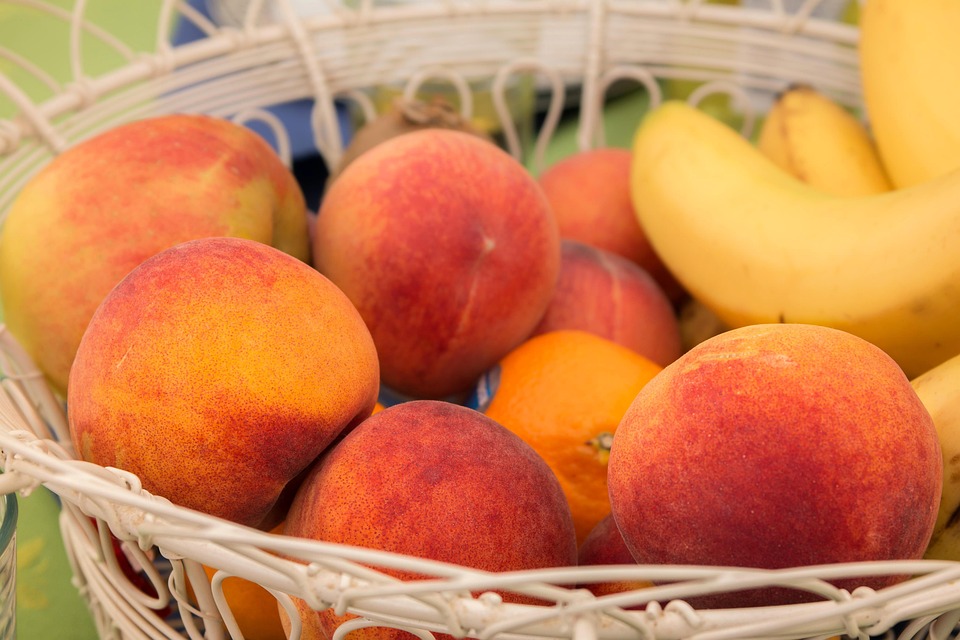Brain Strengthening Fruits are a delicious, simple way to sharpen memory, protect your brain, and feel steadier in daily life. These are fruits rich in antioxidants, healthy fats, vitamins, and polyphenols that help preserve neurons, support blood flow, and calm inflammation. If you want to remember names, keep your focus during long workdays, or protect the brain as you age, choosing the right fruit matters. I’ll show you seven fruits that actually help the brain — with practical tips and research you can rely on.
Contents
- Brain Strengthening Fruits To Start With
- Bottom Line
- FAQ
Brain Strengthening Fruits To Start With
Fruits affect your brain through nutrients and habits. Flavonoids, vitamin C, healthy fats, and polyphenols reduce oxidative stress and help form new neural connections. Studies from universities and medical centers show that regular intake of certain fruits links to better memory performance and slower cognitive decline, so this isn’t guesswork; it’s food science in motion.
Eating these fruits is an act of prevention and performance. They improve short-term recall and long-term resilience. You don’t need a pharmacy. You need a basket of smart choices and simple habits.
Blueberries — The Memory Powerhouse
Blueberries are often called brain food for good reason. Rich in anthocyanins, they cross the blood-brain barrier and protect neurons from oxidative damage while increasing signaling between brain cells. Research from multiple labs, including work published in reputable journals, links regular blueberry consumption to better memory and delayed cognitive aging.
Add a handful to your morning porridge or smoothie three times a week. Frozen blueberries are just as effective and last longer, so you’ll keep this memory booster on hand.
Avocado — The Healthy-Fat Brain Booster
Avocado is a fruit many overlook as a cognitive ally. The monounsaturated fats in avocado improve blood flow and support healthy cholesterol levels — both key for brain function. Clinical studies show diets higher in these fats can improve attention and executive function.
Use avocado as a spread instead of butter, or slice it onto salads for a steady release of energy and improved circulation to the brain. A daily half avocado is a small, powerful habit.
Pomegranate — Antioxidant-Rich And Protective
Pomegranate is loaded with polyphenols that reduce inflammation and oxidative stress in the brain. Animal and pilot human studies suggest pomegranate compounds can help protect hippocampal cells — the area of the brain linked to memory formation.
Drink a small glass of unsweetened pomegranate juice or sprinkle seeds over yogurt. It’s a concentrated way to feed your neurons without fuss.
Red Grapes — Resveratrol For Resilience
Red grapes and their skins contain resveratrol and other polyphenols linked to improved blood flow and reduced neuroinflammation. Research suggests these compounds support mitochondrial function in brain cells and may help maintain cognitive flexibility.
Snack on a cup of red grapes, add them to a salad, or blend them into a quick sorbet. They’re a portable, tasty brain pick-me-up.
Oranges — Vitamin C For Clear Thinking
Oranges are a classic for a reason. Vitamin C is essential for neurotransmitter synthesis and protects the brain from oxidative damage. Higher vitamin C intake correlates with better memory and attention in several observational studies.
Peel one for breakfast, squeeze a fresh half into water, or toss orange segments into a leafy salad. It’s an immediate, refreshing nutrient boost.
Apples — Quercetin And Cognitive Support
Apples bring quercetin, a flavonoid shown to reduce inflammation and protect brain cells. Observational studies associate regular apple intake with lower risk of neurodegeneration and improved mental clarity on memory tests.
Eat them with the skin for the biggest benefit, slice into afternoon snacks, or bake with cinnamon for a cozy, brain-friendly dessert.
Kiwifruit — Small Fruit, Big Nutrients
Kiwifruit packs vitamin C, lutein, and other antioxidants that support neural health and healthy sleep — and sleep matters as much to memory as anything you eat. Better sleep consolidates memories and clears metabolic debris from the brain.
Keep kiwi in your fruit bowl. Slice it into cereal, blend into green smoothies, or enjoy it alone for a tangy nutrient hit.
How These Fruits Help — The Science in Plain Terms
These fruits help by three main mechanisms: lowering inflammation, protecting cells from oxidative damage, and improving blood flow and signaling between neurons. Studies from medical centers and universities have repeatedly tied diets rich in fruits and vegetables to reduced risk of cognitive decline and improved short-term memory performance. When you reach for one of these brain strengthening fruits instead of a sugary snack, you’re choosing a stabilizing, brain-friendly fuel.
The effects are cumulative. Regular choices beat occasional splurges. Make these fruits part of your routine and your brain will thank you in meetings, conversations, and quiet moments when you need to remember what matters.
Simple Ways To Add These Fruits To Your Day
- Start with breakfast: top oats or yogurt with blueberries and sliced apple.
- Swap spreads: use mashed avocado on toast instead of margarine.
- Pack a snack: a small container of grapes or kiwi keeps you focused through the afternoon.
- Make a habit: keep a frozen fruit mix in your freezer for quick smoothies.
Small, consistent swaps matter more than dramatic one-day cleanses. A daily spoonful of these brain strengthening fruits is a commitment that pays off.
Meal Ideas That Actually Work
A quick memory-boosting bowl: Greek yogurt, blueberries, sliced apple, a drizzle of pomegranate molasses, and chopped walnuts.
Lunch idea: mixed greens, grilled salmon, avocado slices, orange segments, and a simple olive oil dressing.
Evening treat: blended frozen grapes with a splash of almond milk and a pinch of cinnamon for a quick sorbet that doubles as a brain snack.
These recipes combine healthy fats, antioxidants, and fiber to keep blood sugar steady and neurons nourished.
Shopping And Storage Tips
Buy seasonal fruit when possible — it’s tastier and cheaper. Frozen options often lock in nutrients and reduce waste, especially with blueberries and grapes. Store avocados at room temperature until ripe, then refrigerate to slow overripening. For pomegranate, buy whole fruit for longer shelf life or 100% juice without added sugar.
Planning and a little prep keep you reaching for real food instead of convenience that undermines memory.
Who Benefits Most From These Fruits
Everyone benefits, but three groups see particular gains: busy professionals needing sharper focus, caregivers and older adults wanting cognitive protection, and students looking for clearer recall during exams. Clinical trials and observational studies suggest diet quality matters across the lifespan — from midlife prevention to supporting memory in later years.
No single fruit is a miracle cure. But combined with sleep, exercise, and stress management, these fruits create a powerful defense.
Expert Voices And Practical Proof
Neurologists and nutrition scientists routinely point to flavonoid-rich foods and healthy fats as foundational to brain health. Reports from university research and medical centers support eating whole fruits for cognition. When respected institutions publish consistent findings, it’s sensible to listen and act. You can pair these fruits with proven habits — walking, sleep, and social connection — to amplify the benefit.
Bottom Line
Choose a basket of blueberries, avocado, pomegranate, red grapes, oranges, apples, and kiwifruit and you’ve assembled a daily memory toolkit. These brain strengthening fruits deliver antioxidants, healthy fats, vitamin C, and polyphenols that protect neural tissue, improve blood flow, and support memory formation. Make them easy to reach, begin small, and repeat often. Your brain responds to steady kindness — in food and in pace.
Eat one smart fruit habit today and you set your future self up for clearer thinking.
FAQ
Can these fruits reverse memory loss?
They are not a cure for diagnosed dementia, but regular intake of these fruits can slow cognitive decline and improve memory performance in many people. Clinical studies show dietary patterns rich in antioxidants and healthy fats support brain health and help preserve cognitive function.
How much fruit should I eat daily?
Aim for at least two servings of whole fruit a day and include a variety across the week. Making the fruits on this list part of those servings gives you a good mix of nutrients that benefit memory and overall brain resilience.
Are supplements as good as whole fruit?
Whole fruit is preferable. It provides fiber and a mix of compounds that work together. Supplements may help in specific cases, but food delivers synergy that pills can’t match.
Can I eat these fruits if I have diabetes?
Yes, with attention to portion sizes and overall carbohydrate balance. Pair fruit with protein or healthy fat — like yogurt with blueberries or avocado with eggs — to blunt blood sugar spikes and protect both brain and body health.
—
References
Harvard Health Publishing explains how antioxidants in fruits like berries support brain health and memory (http://www.health.harvard.edu/mind-and-mood/foods-that-boost-brainpower).
The National Institutes of Health offers research summaries on flavonoids, polyphenols, and cognitive function (https://www.nih.gov/news-events/nih-research-matters/compounds-in-berries-may-protect-against-memory-loss).
The Alzheimer’s Association provides dietary guidance and links between heart health and brain health that underscore the role of fruit-rich diets (http://www.alz.org/help-support/brain_health/diet).








